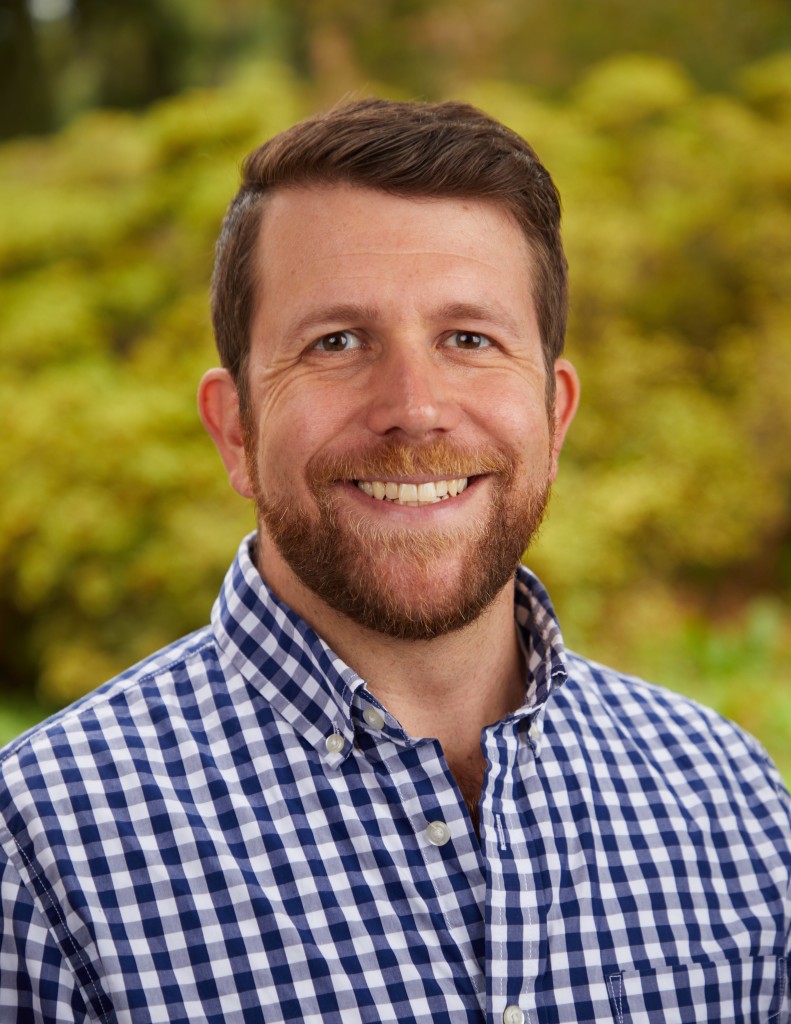Changing Lives One Book at a Time with Professor Ned Schaumberg
By Kiyomi Kishaba '21
English & Communication Major
Ned Schaumberg is a Visiting Assistant Professor at Pacific Lutheran University (PLU) who teaches postcolonial and global literature, and researches the role of water in literary and environmental contexts. He could also save your life.
According to his parents, Schaumberg’s journey to professorship began at the age of seven. When most kids filled in the “When I grow up, I want to be” blank with “an astronaut” or “a fireman,” Schaumberg declared “I want to be a college professor!” He claims to have no recollection of deciding his career in third grade, and yet here he is, still bouncing with contagious enthusiasm in his office.
From Schaumberg’s perspective, his route to employment wasn’t quite so straightforward. Yes, this when we get to the saving-your-life part. After graduating from Whitman College in 2009 with a BA in English, Schaumberg felt lost. He took some courses at a community college and, as one does, began training to be an Emergency Medical Technician (EMT).

His reasoning: “I’ll do something as far away from English as I can get. And, that’ll help me think about if I want to go to grad school in English because I like it and I’m good at it, or if I just don’t have anything better to do.”
Spoiler alert, Schaumberg is good at English. He also realized a couple months out of undergrad how much he enjoys reading and talking about books, especially in a university setting where his peers share his passion. And, in hindsight, his training as an EMT connected with the study of teaching; both professions are fundamentally about helping people.
“Once I got to graduate school, I discovered that I absolutely adored teaching,” Schaumberg said, “and that being in this collaborative discussion-based environment, thinking about important stuff, talking to students about it, helping people in the grandest sense to become their best selves; that is super motivating for me.”
Schaumberg graduated in 2018 from the University of Washington (UW) with a Ph.D in English, then had a year-long postdoctoral fellowship at the University of Texas at Arlington. He was thrilled to see a job opening at PLU; he and his wife have a small baby girl, and most of their family lives in the northwest.
Discussing his time at UW, Schaumberg noted the change of his literary focus from, “classically difficult white guy writing” to, “water stuff,” specifically through a global and environmental lens. Instead of saving lives in an ambulance, Schaumberg began changing them in classrooms by teaching, researching, and advocating for environmental preservation. The connections between the way we read, write, and talk about the environment, and the way this is reflected in the physical world, intrigued him, and he began to recognize the interconnectedness between our academics and surrounding environments.
“It’s so tempting to think about what we do as academics and intellectuals as separate from what we do as living breathing humans, and that is not accurate,” Schaumberg said.
PLU impressed Schaumberg with its dedication to a global and environmental mission statement reflecting this kind of connection.
“I do think PLU is a place that is thinking about how this stuff applies in the world,” Schaumberg said. “And it’s thinking about what it means to connect classrooms things to both one’s work, one’s vocation, but also to one’s citizenship, and how one lives from day to day and month to month, and that’s amazing to me.”
But in true PLU fashion, Schaumberg is quick to recognize his privilege as a white male, and the effects of his embodiment in a classroom. He acknowledges the limits of his knowledge, and how the authors he teaches, who are primarily women, have a different life experience than himself. Schuamberg believes not acknowledging his embodiment is dangerous as a scholar, as would be any effort “to pretend that it doesn’t matter that I am who I am and I’ve lived the way I’ve lived.”
Schaumberg’s teaching and his scholarship are both motivated his curiosity. “When I’m reading, I’m often caught by something, or inspired by something, and I’m like “oh my god what about this thing!” and I’ll start digging around to see what is out there about that idea or concept.”
Throughout Schaumberg’s time as a professor, he learned to accept that the benefits of his teaching are indirect, and may not be recognized by the students right away, if ever. This is in stark contrast to his brief time as an EMT, where the effects of his job were tangible and literally life-changing. However, Schaumberg still changes lives, whether or not students are aware of it.
“It might be ten years from now that you think ‘man, that book we read ten years ago just has stuck in my brain,’” Schaumberg said. “And you might just be a little different from a class you took from me and never know it, and that’s fine.”
Above all, Schaumberg believes in the connection between academic study and the way we live. He thinks about how he can apply what he learns from these books to his life, and hopes students resonate with the texts in their own fashion.
“One thing that PLU has sort of made me recommit myself to, as a teacher and a scholar, is thinking about how…the environments that we share, connect, and they connect in messy ways.”


